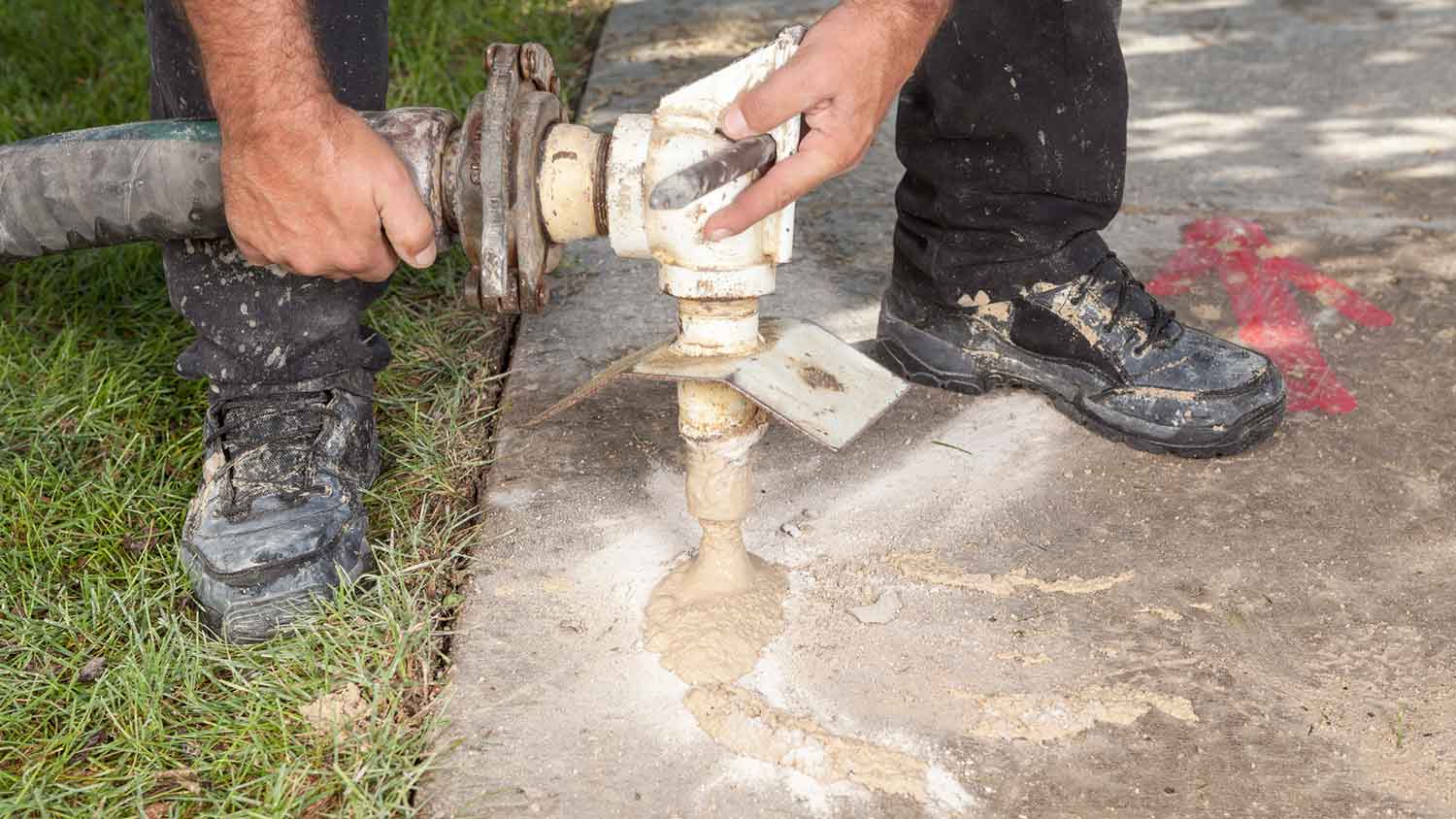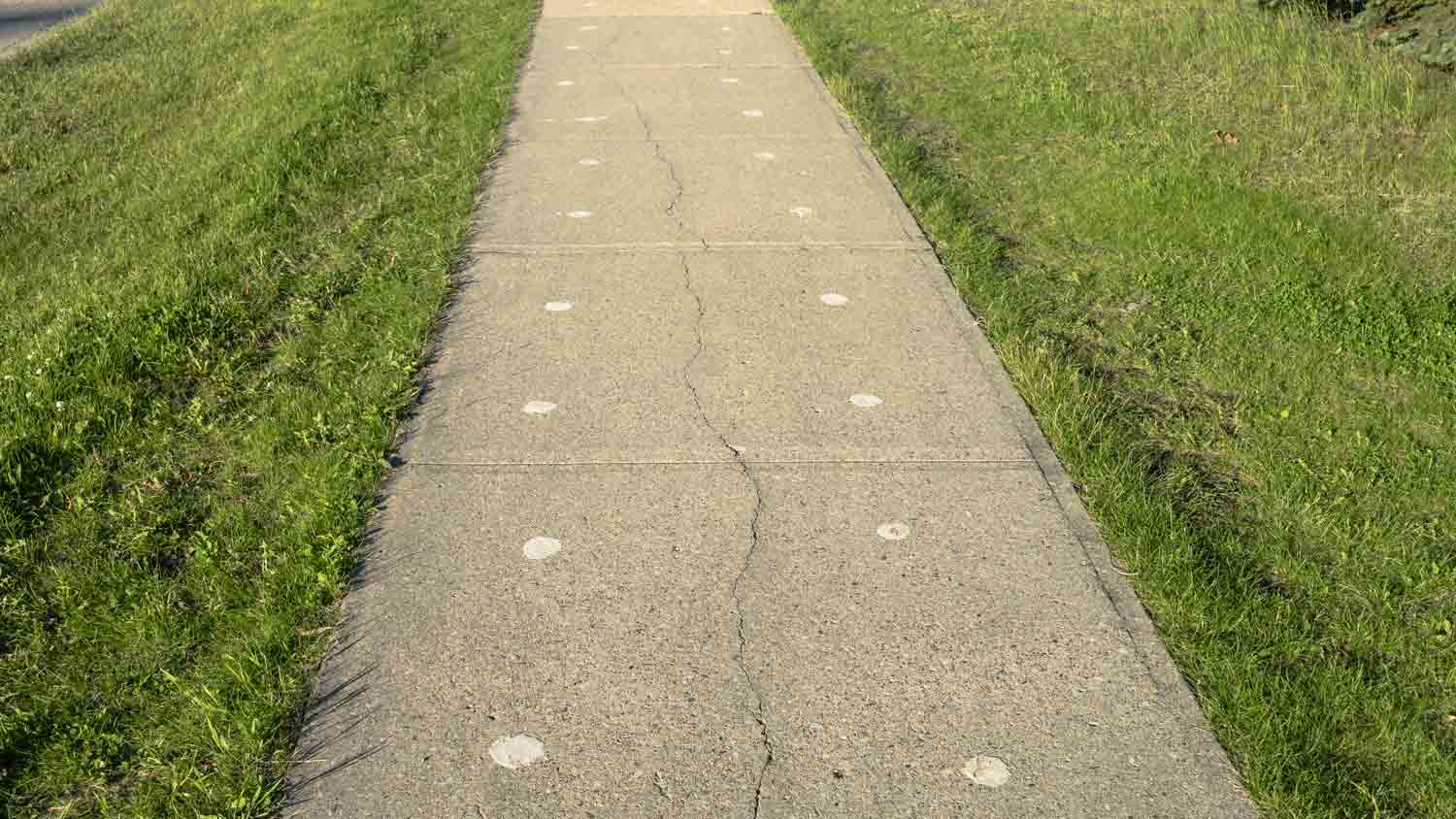
Don’t let sinking concrete capsize your budget. Learn about concrete leveling costs and the available methods to plan ahead for your project.
No more hauling groceries up or chasing runaway basketballs down


Sometimes, a home can't help but have a steep driveway. The property might not have a place for a flat driveway, or it may sit on a hill. After all, putting in a steep one is better than not having a driveway at all.
But a steep driveway can be tricky, as you’ll have to be careful to avoid damage to your vehicle. Plus, once it gets cold, you may even have to worry about sliding on slippery or icy pavement into the street below.
So what can you do if your driveway is too steep? Fortunately, you have a few solutions.
The simplest solution to a steep driveway is to cover it with gravel or even sand—these are a couple of the best driveway material options. Taking on the cost to install a gravel driveway will provide better traction for your vehicle.
Of course, it's not as attractive as a paved driveway, but it will potentially help solve the problem of a steep driveway for the lowest cost. This material is the best option for homeowners who are on a budget and aren't especially concerned with the appearance of their driveway.
Installing a ramp at the foot of a driveway can prevent a dip from causing damage to your vehicle's undercarriage. Generally, you do this by adding concrete at the base of the driveway to fill that dip in. This project can help reduce the overall slope of the drive as well. You can hire a professional to create a ramp, which may cost $2,000 or more, or you can buy a premade ramp online for a few hundred dollars.
Resin is an excellent material for steep driveways because it gives your tires extra grip compared to pavement. Resin will go a bit farther than gravel, so it's best for the steepest of driveways. If there's no way to reduce the overall slope and your driveway is particularly steep, this may be your best solution.
To put in a resin surface, you'll have to cover the area with sand and gravel followed by a layer of decomposed granite, and then finally the resin layer. This is definitely a job you'll want to leave to a professional.
It will cost about $5 per square foot for the materials to install a resin driveway, and if you hire a pro to do it, the price could go up to around $10 per square foot.
Speed bumps don't just keep drivers from speeding through your neighborhood; they can help your vehicle with a steep driveway. These bumps make it a little bit more uncomfortable to drive on your driveway, but it will reduce the risk of the tires slipping, and it's a relatively low-cost solution. You can buy rubber speed bumps online for between $100 and $500.
Regrading is a more extreme option, and many homeowners who just paid to put in a new driveway may balk at this. But you may eventually find it's your only option for actually reducing the slope of your driveway rather than simply making it safer with the slope it has.
This process would involve removing your driveway and putting in filler soil to adjust the grade, followed by a complete repaving. Obviously, a local driveway installer would handle most of this work, but if you are running into constant problems with slipping tires and damage to your vehicle, it may actually save you money in the long run.
For 500 square feet of driveway, you can expect to pay around $3,000 to $5,000, which means it costs about $7 to $10 per square foot.
Now that you know some of the top solutions for fixing a steep driveway, it’s good to elaborate on ways to maintain a sloping driveway.
Consider installing driveway pavers to stabilize the gravel and improve the overall curb appeal.
Regularly assess for potholes, and consider hiring a driveway company to fix them as needed.
Regrade your driveway twice a year.
Add safety barriers on either side of the driveway to help prevent accidents.

If you're going to get major work done on your driveway, you're talking about adjusting not only the look and feel of the driveway but also affecting things like drainage that can cause real problems down the road if you make a mistake. That's why a project like this isn't well-suited for DIYers.
It's best to get a professional to at least check out your driveway. A local driveway professional can tell you which of the options above is the best bet for your unique situation and provide a price quote so you can work it into your budget. You may need to hire a local concrete leveling company to fix any sinking driving issues.
From average costs to expert advice, get all the answers you need to get your job done.

Don’t let sinking concrete capsize your budget. Learn about concrete leveling costs and the available methods to plan ahead for your project.

Wondering about mudjacking costs? Discover prices, key cost factors, and tips to save on your concrete leveling project.
Learn about concrete leveling and how it can fix uneven surfaces, from sunken sidewalks to uneven driveways, and boost your home’s safety and curb appeal.

Leveling concrete slabs around your home is no small feat. Learn who to call to level your concrete slab and why they’re the right choice.

Mudjacking is an affordable fix for sunken or uneven concrete. Learn what mudjacking is and if it’s worth it for your driveway, sidewalk, or patio.

Sunken concrete can be a structural issue, but a professional can easily repair it. Ask these concrete injection leveling and mudjacking questions before you hire.